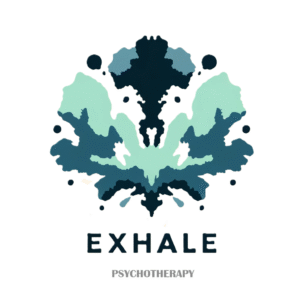
Image Source: FreeImages
As a mental health professional, I have seen first hand the debilitating effects of anxiety on individuals. Anxiety can make it difficult to go about day-to-day activities, impact relationships, and even lead to physical health problems. However, there are natural methods that can help ease the symptoms of anxiety. In this blog post, I will explore the mind-body connection and how exercise and mindfulness can help ease anxiety.
What is anxiety?
Anxiety is a natural response to stress. It is a feeling of unease or worry about what’s to come. Anxiety can be a normal and healthy response to certain situations, but it becomes a problem when it is excessive, persistent, and interferes with daily life.
Symptoms of anxiety
The symptoms of anxiety can vary from person to person, but some common symptoms include:
- Feeling nervous, tense, or on edge
- Experiencing panic attacks
- Feeling a sense of impending doom or danger
- Having a racing heartbeat or sweating
- Trouble sleeping or concentrating
- Avoiding situations that cause anxiety
Types of anxiety disorder
There are several types of anxiety disorders, including:
- Generalized anxiety disorder (GAD)
- Panic disorder
- Social anxiety disorder
- Obsessive-compulsive disorder (OCD)
- Post-traumatic stress disorder (PTSD)
- Specific phobias
Each type of anxiety disorder has its own specific symptoms and treatment options.
The mind-body connection and anxiety
The mind and body are connected, and the way we feel mentally can impact our physical health. Anxiety can lead to physical symptoms such as headaches, muscle tension, and fatigue. It is important to address both the mental and physical symptoms of anxiety to achieve overall wellness.
How exercise can help ease anxiety
Exercise is a natural and effective way to reduce anxiety. When we exercise, our body releases endorphins, which are natural mood boosters. Exercise also helps to reduce muscle tension and improve sleep, both of which can ease the symptoms of anxiety.
It is recommended to aim for at least 30 minutes of moderate-intensity exercise most days of the week. This can include activities such as walking, jogging, swimming, or cycling. Yoga and Pilates are also great forms of exercise that incorporate mindfulness and relaxation techniques.
Mindfulness and anxiety
Mindfulness is the practice of being present in the moment and accepting our thoughts and feelings without judgment. Mindfulness has been shown to be effective in reducing symptoms of anxiety.
One simple mindfulness technique is deep breathing. Take a few deep breaths, focusing on the sensation of the air moving in and out of your body. Another technique is progressive muscle relaxation. Tense and relax each muscle group in your body, starting from your toes and working your way up to your head.
Tips for incorporating exercise and mindfulness into your routine
To incorporate exercise and mindfulness into your routine, try the following tips:
- Schedule exercise into your day, just like any other important task.
- Try a new form of exercise to keep things interesting.
- Find a workout buddy to help keep you motivated.
- Practice mindfulness for a few minutes each day, even if it’s just taking a few deep breaths.
- Use technology to your advantage, such as apps that offer guided meditations or workout plans.
Natural remedies for anxiety
In addition to exercise and mindfulness, there are several natural remedies that can help ease the symptoms of anxiety. Some of these remedies include:
- Chamomile tea
- Lavender essential oil
- Omega-3 fatty acids
- Valerian root
- Passionflower
It is important to talk to your healthcare provider before trying any new natural remedies, as some may interact with medications or have side effects.
Anxiety treatments
If natural remedies are not effective in easing the symptoms of anxiety, there are several treatment options available. These options include:
- Therapy, such as cognitive-behavioral therapy (CBT)
- Medications, such as antidepressants or anti-anxiety medications
- Alternative therapies, such as acupuncture or massage
It is important to work with a healthcare provider to determine the best treatment plan for your individual needs.
Conclusion
Anxiety can be a debilitating condition, but there are natural methods that can help ease the symptoms. Exercise and mindfulness are two effective ways to reduce anxiety and improve overall wellbeing. Remember to talk to your healthcare provider before trying any new treatments or natural remedies. With the right treatment plan, it is possible to manage anxiety and live a fulfilling life.
